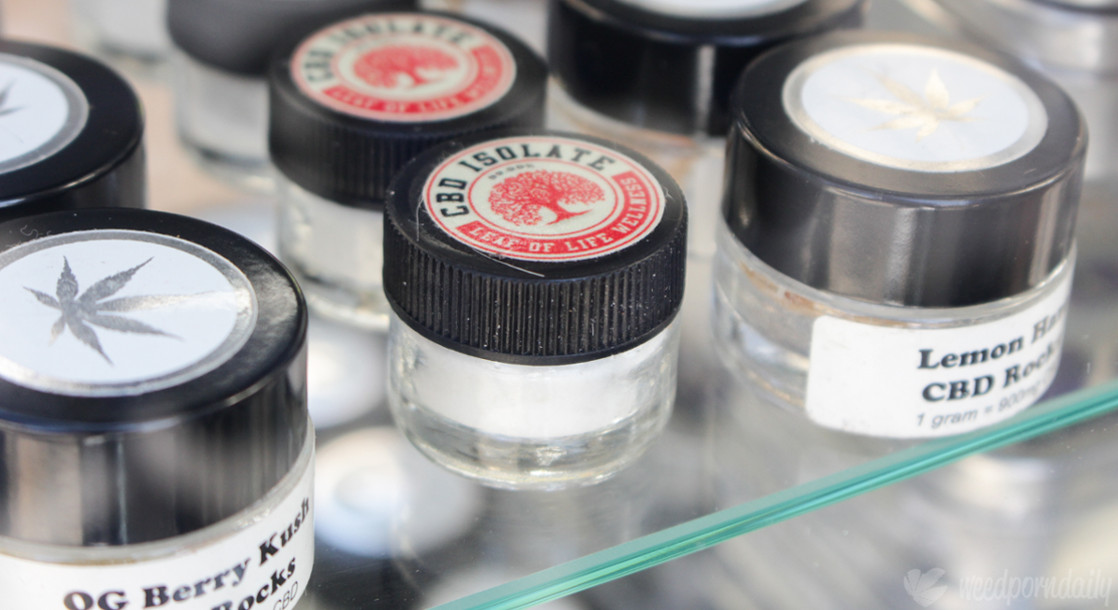In a historic moment for medical cannabis, the Food and Drug Administration just granted market approval to an epilepsy medicine derived directly from cannabis plant material. The drug, Epidiolex, was developed by British biotechnology company GW Pharmaceuticals to treat two rare forms of severe epilepsy — Dravet syndrome and Lennox-Gastaut syndrome. The drug went through several phases of clinical trials, all of which confirmed the efficacy and safety of the drug in treating the symptoms of these disorders, before finally gaining federal approval.
In a statement, the FDA noted that Epidiolex is "the first FDA-approved drug that contains a purified drug substance derived from marijuana." The agency explained that the drug contains CBD, and not THC, and is hence not psychoactive in any way. The FDA has previously approved three other marijuana-based medicines — marketed as Marinol, Cesamet, and Syndros — but all three of these are created from synthetic, lab-prepared cannabinoids, not actual cannabis plants themselves.
"The difficult-to-control seizures that patients with Dravet syndrome and Lennox-Gastaut syndrome experience have a profound impact on these patients' quality of life," said Billy Dunn, director of the Division of Neurology Products in the FDA's Center for Drug Evaluation and Research. "In addition to another important treatment option for Lennox-Gastaut patients, this first-ever approval of a drug specifically for Dravet patients will provide a significant and needed improvement in the therapeutic approach to caring for people with this condition."
"This approval serves as a reminder that advancing sound development programs that properly evaluate active ingredients contained in marijuana can lead to important medical therapies," FDA Commissioner Scott Gottlieb said in a statement. "We'll continue to support rigorous scientific research on the potential medical uses of marijuana-derived products and work with product developers who are interested in bringing patients safe and effective, high-quality products."

While the DEA still classifies all other cannabis-derived medicines as Schedule I drugs with no medical value, the agency will have to choose a different schedule for Epidiolex now that the FDA has approved its medical use. The agency is expected to make this classification within 90 days. Gottlieb made it clear that the FDA's approval of Epidiolex does not mean that all CBD-based medicines are now legal, however.
"This is an important medical advance," Gottlieb said to STAT. "But it's also important to note that this is not an approval of marijuana or all of its components. This is the approval of one specific CBD medication for a specific use."
The commissioner also noted that his agency is "prepared to take action when we see the illegal marketing of CBD-containing products with serious, unproven medical claims." Last year, the FDA sent warning letters to a number of CBD manufacturers, demanding that they cease making "unproven" claims that their medicines can fight cancer.
"The FDA's approval of this plant-derived medicine provides an additional option to patients seeking the therapeutic benefits of cannabis," NORML Deputy Director Paul Armentano said in a statement. "However, it remains to be seen whether physicians will be comfortable prescribing this new agent to those patients who may benefit from it, and whether it will be priced in a range that patients may afford." The actual list price of Epidiolex has not been set, but has been estimated at $2,500 to $5,000 a month, significantly more expensive than other CBD-based medication made available through state-legal medical cannabis programs.
"We anticipated that Epidiolex will be the first of many potential FDA-approved medicines based on the cannabis plant," Armentano continued. "Nonetheless, these alternatives should not be regulated as options to replace the use and regulation of herbal cannabis — a product that humans have used safely and effectively as a medicine for thousands of years and is approved today by statute in 30 states."











